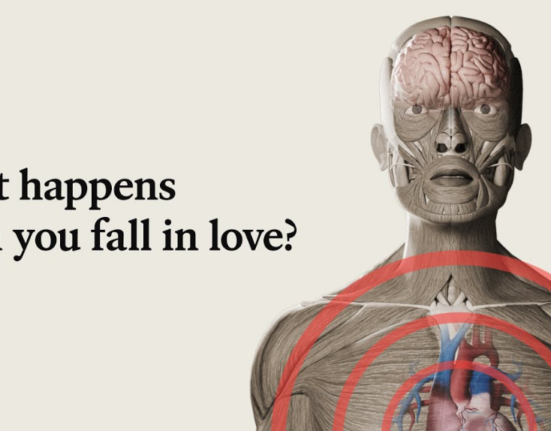- Define 6 Types of Relationships: Lasting Insights into Different Types of Romantic Relationships
- Introduction to 6 Types of Relationships
- Romantic Relationships and Their Impact
- Familial Relationships: A Key Type of Relationship
- Friendships: A Crucial Type of Relationship
- Professional Relationships and Building Trust
- Casual Relationships and Their Role
- Relationship with Self: The Foundation of a Good Life
- The Psychological Impact of Different Types of Relationships
- Conclusion
Define 6 Types of Relationships: Lasting Insights into Different Types of Romantic Relationships
Introduction to 6 Types of Relationships
Understanding the different types of relationships in our lives is essential for our emotional and psychological well-being. Every kind of relationship uniquely contributes to our happiness, growth, and overall quality of life. In my new comprehensive guide, we’ll explore 6 types of relationships and how they impact your life. We’ll delve into romantic relationships, familial relationships, friendships, professional relationships, casual relationships, and the relationship with self.
Romantic Relationships and Their Impact
Romantic relationships are often seen as the most significant connections in our lives. These relationships are characterised by deep emotional and physical intimacy. They provide us with companionship, love, and support, and play a crucial role in our emotional well-being.
Defining a Romantic Relationship
A romantic relationship involves mutual affection, love, and a commitment to one another. This type of relationship often includes physical intimacy and emotional bonding. In a romantic relationship, partners may experience a range of emotions, from passionate attraction to deep emotional connection. The ability to identify and express these feelings is crucial for maintaining a healthy and intimate bond.
Challenges and Benefits of Romantic Relationships
Challenges:
- Communication Issues: Misunderstandings and lack of effective communication can strain a romantic relationship.
- Trust: Building and maintaining trust can be difficult, especially after breaches.
- Conflict Resolution: Managing disagreements and conflicts without harming the relationship.
- Balancing Individual Needs: Finding a balance between personal needs and the needs of the relationship.
- Maintaining Intimacy: Keeping the emotional and physical intimacy alive over time.
Benefits:
- Emotional Support: Providing and receiving emotional support enhances well-being.
- Companionship: Having a partner to share life’s experiences and challenges.
- Increased Happiness: A healthy romantic relationship can boost overall happiness and life satisfaction.
- Personal Growth: Romantic relationships encourage personal development and self-awareness.
- Security and Stability: Offering a sense of security and stability through mutual commitment and love.
Familial Relationships: A Key Type of Relationship
Familial relationships provide a foundation of support and stability. These relationships include connections with parents, siblings, and extended family members. They are often characterised by unconditional love and a deep sense of belonging. In the context of familial bonds, we learn fundamental values and behaviours that shape our identity and approach to other relationships.
Family relationships are crucial for our emotional and psychological well-being. They offer a support system that helps us navigate life’s challenges and celebrate our successes. These relationships are essential for developing a sense of identity and belonging.
Friendships: A Crucial Type of Relationship
Friendships are essential for our mental and emotional health. These relationships provide companionship, support, and a sense of belonging outside of our family and romantic partners. Friendships can be platonic yet deeply fulfilling, offering a unique form of intimacy that enhances our quality of life.
Emotional Relief and Intimacy in Friendships
Friendships offer a unique form of intimacy and emotional relief. They allow us to share our thoughts and feelings openly, providing a safe space for emotional expression and support. Friends can help us navigate through life’s ups and downs, offering empathy and understanding.
Friendships also play a vital role in our overall well-being. They provide social interaction, reduce stress, and contribute to our sense of happiness and fulfilment. A healthy relationship with friends is marked by mutual respect, shared interests, and emotional support.
Professional Relationships and Building Trust
Professional relationships are crucial for career growth and workplace satisfaction. These relationships, whether with colleagues, supervisors, or mentors, can significantly impact our professional development and job satisfaction.
Trust is the cornerstone of professional relationships. A healthy workplace relationship is built on mutual respect, effective communication, and reliability. Professional relationships that are based on trust and cooperation can lead to increased productivity, job satisfaction, and career advancement.
Building strong professional relationships involves setting boundaries, being dependable, and maintaining open lines of communication. These relationships provide support, foster collaboration, and enhance our professional network.
Casual Relationships and Their Role
Casual relationships include acquaintances and less formal connections. These relationships, though often overlooked, play a significant role in our daily lives by providing social interaction and a sense of community.
Positive casual relationships can enhance our sense of community and belonging. They provide social support and can lead to meaningful connections over time. Casual relationships also offer opportunities for networking and expanding our social circles.
These relationships can be diverse, ranging from neighbours and colleagues to fellow community members. While they may not be as intense as other types of relationships, they are still valuable for our overall well-being.
Relationship with Self: The Foundation of a Good Life
The relationship with self is perhaps the most important of all. It involves self-awareness, self-love, and personal growth. A healthy relationship with oneself is the foundation for all other relationships.
Self-awareness and personal growth are essential for maintaining a healthy relationship with self. Understanding and accepting oneself leads to better emotional health and more fulfilling relationships with others. This type of relationship requires introspection and a commitment to personal development.
Techniques to Improve Self-Relationship for a Good Life
- Practice Self-Care: Prioritise activities that promote your physical, emotional, and mental well-being.
- Set Personal Goals: Identify and work towards goals that align with your values and aspirations.
- Engage in Reflective Practices: Use journaling, meditation, or mindfulness to increase self-awareness and self-intimacy.
- Seek Professional Help: Consult a therapist for guidance and support in building a healthier relationship with yourself.
- Develop Self-Compassion: Treat yourself with the same kindness and understanding that you would offer a close friend.
- Explore Personal Interests: Dedicate time to hobbies and activities that bring you joy and fulfilment.
- Foster Positive Self-Talk: Replace negative thoughts with encouraging and empowering affirmations.
- Create Healthy Boundaries: Establish limits that protect your emotional and mental health.
- Connect with Your Emotions: Allow yourself to fully experience and process your feelings without judgment.
- Celebrate Your Achievements: Acknowledge and take pride in your successes, no matter how small.
The Psychological Impact of Different Types of Relationships
Mental Health Benefits of Healthy Relationships
Healthy relationships provide emotional support, reduce stress, and contribute to overall happiness and well-being. They are essential for mental health and life satisfaction. Positive relationships can boost self-esteem, provide a sense of security, and enhance our emotional resilience.
Recognising Toxic Relationships and Their Effects
Recognising and addressing toxic relationships is crucial for maintaining mental health. These relationships often involve emotional abuse, lack of support, and high levels of stress. It’s important to identify the signs of a toxic relationship and take steps to protect your well-being.
Strategies for Managing and Defining Healthy Relationships
Effective strategies for managing and defining healthy relationships include setting boundaries, practising open communication, and seeking professional help when needed. Building and maintaining healthy relationships involves intentional effort and a commitment to personal growth.
Conclusion
By understanding and nurturing these 6 types of relationships, you can significantly improve your overall well-being and lead a more fulfilling life. Embrace the diversity of your connections and invest in each one to build a supportive and enriching network around you. By doing so, you’ll create a life filled with meaningful connections and a profound sense of well-being.

Rachel Hall, M.A., completed her education in English at the University of Pennsylvania and received her master’s degree in family therapy from Northern Washington University. She has been actively involved in the treatment of anxiety disorders, depression, OCD, and coping with life changes and traumatic events for both families and individual clients for over a decade. Her areas of expertise include narrative therapy, cognitive behavioral therapy, and therapy for traumatic cases. In addition, Rachel conducts workshops focusing on the psychology of positive thinking and coping skills for both parents and teens. She has also authored numerous articles on the topics of mental health, stress, family dynamics and parenting.














Leave feedback about this